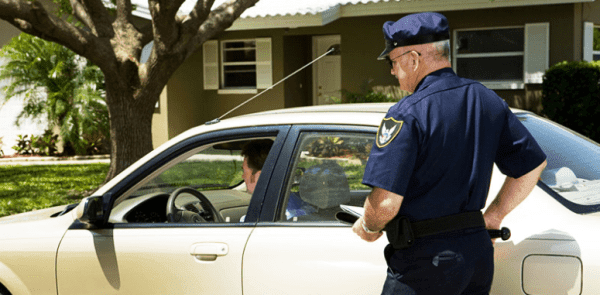I get this question all the time from friends, family and clients. However, I think this is a wrong question that people are asking, the real question is “how do I avoid being pulled over by a police officer?” Obviously the officer first has to conduct a traffic stop, and then issue the traffic ticket. In order to do that, the police officer, has to have a reason to pull you over. Some of the most common reasons are speeding, missing a tag light, an expired tag, running a stop sign, or driving without your headlights. These apply to both criminal and civil traffic tickets. This same list, applies to DUI cases as well.
So the moral of the story, when it comes to traffic tickets, is not to give the officer a reason to stop you.
So plain and simple, this means, that you need to make sure that your registration on your tag is up-to-date. You need to make sure that the tag on your car, actually belongs to your car. I know this sounds silly, but I have handled countless cases, where people have been pulled over exactly for that reason. Either a dealership made a mistake, or a person was simply thinking that what are the chances of me being stopped by a police officer, when I just bought a car and will borrow someone else’s tag.
Some of us have a heavy foot, and keep driving over the speed limit. Around Jacksonville and in the Northeast Florida, there are some known areas where there are speed traps, a famous example is on County Road 301. Because we have so much construction in Jacksonville, very often the speed limit changes drastically, and I have clients that end up with a ticket with 30 miles over the speed limit, which is a mandatory appearance in court. You’re also not eligible to do traffic school in that case. So, pay attention to the speed limit!
If you do received a traffic ticket, make sure to figure out if it is civil or criminal ticket.
Civil traffic tickets are costly. First of all you have to pay a fine, and second your insurance will go up if you get points. Remember don’t just pay your traffic ticket, rather understand your options. If you get a traffic ticket and you qualify to take driver improvement class, you can avoid points that way. You can only take that class five times in your lifetime and once in 12 months. You can sign up for the online class. The most important rule to remember is that you have to do the class first, and only then submit a certificate and pay your fine. Frequently, I get phone calls from clients who have paid their ticket and then took the class, without realizing the effect it will have on their driving record. We then help them file a motion to ask the court to withhold points, even after the points have been assessed on their driving record. The second option is to schedule it for a traffic ticket hearing.
Many people assume that this hearing is a trial, but in Duval county that is different. The first hearing simply serves as an opportunity to either enter a plea or schedule your traffic ticket for a trial. The trial will be scheduled a month out, so the court can subpoena the officer and everybody else involved. Our office handles hundreds of traffic ticket cases regularly, and we help our clients avoid points.
If you decide that you want to challenge your traffic ticket, after the first hearing, it will be scheduled for a traffic ticket trial, and you will be required to attend and present your case. We frequently take careless driving tickets to trial, and help clients dismiss the ticket. With the new regulation, that applies to CDL drivers, where they are not eligible to take traffic school anymore, we frequently have to set those cases for trial.
Just remember, if you simply pay your traffic ticket, whatever it is, you will receive points on your driving record.
It is also important to point out, that many people confuse traffic tickets with criminal tickets. The most obvious example is careless driving (Civil ticket) as opposed to reckless driving (criminal ticket). Those are very different. The first one is simply a civil citation, and the second is a criminal case punishable by possible incarceration and fine. If you received a criminal ticket, such as reckless driving, racing on a highway, or attaching tag not assigned, you must schedule your court date within 30 days or as indicated on your ticket. If you fail to schedule it on time, the Court can issue a warrant for your arrest.


